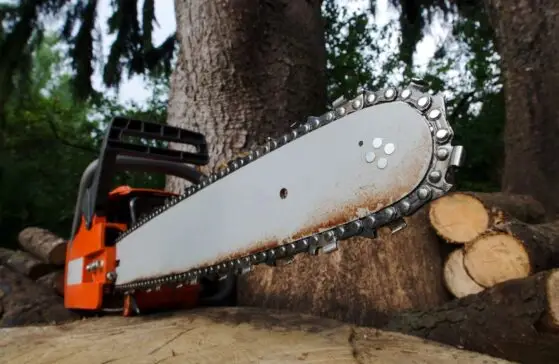 Well, gang, looks like all that marching and letter-writing are paying off. I’ve been invited as a guest to appear on ORNORML Presents on Multnomah Community Television (Public Access Cable) this Sunday! I’ll be appearing as part of a roundtable, discussing Oregon Senate Bill 772 and Oregon Senate Bill 294 and US House Resolution 2087 (details after the jump), and taking calls from the vast audience of people watching cable access TV on a Sunday afternoon.
Well, gang, looks like all that marching and letter-writing are paying off. I’ve been invited as a guest to appear on ORNORML Presents on Multnomah Community Television (Public Access Cable) this Sunday! I’ll be appearing as part of a roundtable, discussing Oregon Senate Bill 772 and Oregon Senate Bill 294 and US House Resolution 2087 (details after the jump), and taking calls from the vast audience of people watching cable access TV on a Sunday afternoon.
So, if you subscribe to Comcast Cable, you can catch the show LIVE:
ORNORML Presents
Cable Channel 11
Sunday, May 15 – 2:00PM-3:00PM (LIVE)
(Rebroadcast Saturday, May 21, May 28, & Jun 4 at 6:00PM, Channel 21)
US House Resolution 2087 – The States’ Rights to Medical Marijuana Act
This bill, introduced by Rep. Barney Frank (D-MA), seeks to reschedule marijuana from Schedule I of the Controlled Substances Act to Schedule II.
Schedule I drugs, like psilocybin (magic mushrooms), MDMA (ecstasy), peyote, heroin, and marijuana, are designated by the federal government as drugs that have “no currently accepted medical use” and “a lack of accepted safety for use of the substance under medical supervision”. Of course, with respect to marijuana, this flies in the face of numerous medical studies that have shown marijuana to be an effective treatment for pain, glaucoma, nausea, spastic disorders, AIDS wasting syndrome, and many other maladies.  And, of course, it means that the ten states that have legalized medical marijuana are in violation of federal law and the 35 states and countless doctors and patients that have recognized marijuana’s medical efficacy are all wrong, according to the DEA.
And, of course, it means that the ten states that have legalized medical marijuana are in violation of federal law and the 35 states and countless doctors and patients that have recognized marijuana’s medical efficacy are all wrong, according to the DEA.
By rescheduling marijuana as a Schedule II drug, it would join cocaine, codeine, methamphetamine, Ritalin, morphine, opium, OxyContin, and PCP (angel dust) as drugs with “a currently accepted medical use in treatment in the United States or a currently accepted medical use with severe restrictions”. (Betcha didn’t know your doctor can legally prescribe cocaine, crank, and angel dust, but not marijuana, eh?). Therefore, doctors in medical marijuana states could legally prescribe marijuana under federal law, as they already can under state law.
Additionally, the bill prevents the federal government from interpreting any part of the Controlled Substances Act or the Food, Drug and Cosmetic Act in any way that prevents doctors in medical marijuana states from prescribing marijuana to their patients, or to harass patients who are legal possession of prescribed marijuana.
Please take a moment to call your federal representative’s offices to ask them to support HR2087 – The States’ Rights to Medical Marijuana Act. It only takes a minute, and a phone call is probably the laziest, most effective way to flex your political muscle (I have Rep. Wu and Senators Smith & Wyden stored in my cell phone; they’ve heard plenty from me!)
If you’re in the Oregon 1st District (Clatsop [Astoria, Seaside], Columbia [St. Helens, Scappoose], Washington [Hillsboro, Beaverton, West Portland], or Yamhill counties), you can reach Rep. David Wu at the numbers below. If you’re anywhere else in the United States, you can find your Representative on the web at www.house.gov; you just type in your zip code and the Rep’s web page comes up.
Representative David Wu – Oregon 1st District
Portland Office, 8AM-5PM — (503) 326-2901
Washington Office, 9AM-6PM Eastern (6AM-3PM our time) — (202) 225-0855
Just say, “Hi, my name is _______ and I’m a constituent from _______. I’d like to ask Representative Wu to sign on to Representative Frank’s Bill, HR 2087, the States’ Rights to Medical Marijuana Act.” It’s as easy as that, and who knows, you may have just saved or extended the life or alleviated the suffering of a very sick person who needs our help!
Oregon Senate Bill 772 – Adjustments to Oregon Medical Marijuana Act
Sponsored by Senator Morisette (D-Dist 6), this bill seeks to change some of the standards of the Oregon Medical Marijuana Act to make medicine more available to patients and coordinate law enforcement with the medical marijuana program, to wit:
- Upgrades number of plants at a grow site from 3 mature/4 immature to 7 plants of any maturity
- Upgrades total usable marijuana at a grow site from 3 ounces to 7 ounces
- Allows exception for grow sites that only produce one crop annually to 28 plants and 80 ounces of usable marijuana
- A multiple-person grow site may provide for seven patients and produce seven plants and seven ounces of usable marijuana for each patient
 Now some people may look at some of those numbers and think, “Wow, that’s a lot of pot. Do patients really need that much?” And the answer is YES. Remember, we’re not talking about a medicine that you can just go down to the pharmacy and acquire. This is a crop. Sometimes crops fail (mites, infections, etc.) Crops also take time and lots of care to produce. Plus, these patients require very large doses of marijuana to treat their conditions; we’re not talking about the recreational user smoking the occasional doobie – some of these people must smoke all day long, every day, just to live.
Now some people may look at some of those numbers and think, “Wow, that’s a lot of pot. Do patients really need that much?” And the answer is YES. Remember, we’re not talking about a medicine that you can just go down to the pharmacy and acquire. This is a crop. Sometimes crops fail (mites, infections, etc.) Crops also take time and lots of care to produce. Plus, these patients require very large doses of marijuana to treat their conditions; we’re not talking about the recreational user smoking the occasional doobie – some of these people must smoke all day long, every day, just to live.
- Eliminates the use of an “affirmative defense” if the patient or caregiver exceeds the new 7-7-7 limits listed above
Which only seems fair. With the current law, many patients or providers could easily be outside the limits of the law, so they could mount a legal defense based on medical necessity. Since the new limits are great enough to easily cover medical necessity, there should be no good reason to break the limits.
- Allows – but does not require – licensed health care professionals who have the right to dispense pharmaceuticals the right to dispense marijuana to patients, and allows the patient the right to use the marijuana in a licensed health care facility
So now a patient in a nursing home or rehab center who is qualified for medical marijuana can use the drug at their home or center. And the common sense inclusion of allowing doctors and registered nurses to dispense marijuana (probably the least dangerous drug they dispense!) to patients is long overdue.
- Requires the state to keep track of the names and addresses of authorized patients and grow-sites and make that information readily available to state and local law enforcement agencies
- however, requires identification of the state or local law-enforcement officer or agency that requests such information, and prevents law-enforcement from using that information in any way but to identify legitimate patients
In other words, no “fishing expeditions” by cops trying to find reasons to harass patients, and no sharing of that information with other agencies, like providing patient’s names or grow-site addresses to the Federal agencies, like the DEA, for the purposes of federal prosecution. If the US House Bill 2087 does not become law, then the DEA can still raid state medical marijuana operations and arrest sick people. These sections should offer some protection from that egregious violation of state sovereignty and medical compassion.
- Requires the Department of Human Services to form an 11-member Advisory Board to advise the Director of Human Services on the state medical marijuana program, including administration, rules, fee structure, etc. The board shall meet four times per year
Sounds reasonable enough.
If you’re an Oregon resident, contact your state senator and ask them to support Senate Bill 772. Now, it can be a little harder to figure out who your senator is, but there’s an interactive map tool you can use to find out which Senate District (and if you like, House District) you live in. On the left side of the page there is a little magnifying-glass tool. Click it, and then click your city to zoom in and find your district. It’s pretty cool technology!
Once you know your Senate District, you can then look up your Senator here. For example, I live near Hall Blvd & Greenway in Beaverton, which puts me in Senate District 14, so my Senator is Ryan Deckert (D), and his number is 503-986-1714. Here’s a helpful tip: all of the Oregon State Senators’ phone numbers are 503-986-17xx, where the xx is your district number (01, 02, 03, etc.)
(While you’re at it, why not figure out who your Oregon Representative is? You can use the same map, and then you can find your Representative here. Then take all those US Senator, US Representative, Oregon Senator, and Oregon Representative numbers and write them down near your phone, or if you got one of them fancy programmable phones, save the numbers. I know, it sounds really nerdy, but hey, you live in a democracy and it is so easy to participate. Don’t complain to your friends and family, complain to the people who can make a difference! If the maps and the websites are too difficult, use the Feedback form at the bottom of this webpage to send me an email with your name and address — I’ll figure out the phone numbers for you! That’s how important I think your voice is.)
Senate Bill 294 – The Oregon Industrial Hemp Bill
Sponsored by Senator Floyd Prozanski (D-Dist 4) for Living Tree Paper, this bill seeks to legalize the production of industrial hemp. While the plant may look similar to marijuana, industrial hemp is a whole other issue entirely. By definition, it is a variety of cannabis plant that contains less than 1% THC (the “high”-producing part of marijuana) and is known worldwide to be the most useful commercial plant known to mankind.
Industrial hemp can be used to produce products such as building materials, cloth, cordage, fiber, food, floor coverings, fuel, industrial chemicals, paint, paper, particle board, plastics, seed meal, seed, oil and yarn, and in most cases these products are materially superior to their non-hemp counterparts and much more environmentally-friendly. (For far more information on hemp, learn about the basic uses of hemp, the nutritional value of hempseed and hempseed oil, and the history of hemp.)
 In a time when we are fighting wars because of our dependence on foreign oil, we should be growing industrial hemp to use as biodiesel fuel. When our farmers are struggling to make ends meet, we should remember the call of Hemp for Victory during World War II when we asked our farmers to grow hemp for the military’s use. Our Constitution was written on hemp paper, our Founding Fathers grew hemp, and our original colonies were required by law to grow hemp.
In a time when we are fighting wars because of our dependence on foreign oil, we should be growing industrial hemp to use as biodiesel fuel. When our farmers are struggling to make ends meet, we should remember the call of Hemp for Victory during World War II when we asked our farmers to grow hemp for the military’s use. Our Constitution was written on hemp paper, our Founding Fathers grew hemp, and our original colonies were required by law to grow hemp.
Hemp was only made illegal when the government outlawed its botanical cousin, marijuana. But there is no logical reason why hemp cannot be legal while marijuana remains tightly regulated. Marijuana cannot be grown and hidden in hemp fields; the two plants cross-pollinate and ruin each other (hemp+marijuana won’t get you high and marijuana+hemp is lousy for industrial use).
Senate Bill 294 tightly regulates the production of industrial hemp and allows for the random testing of industrial hemp to ensure it remains the below the 1% THC limit. It requires farmers to keep detailed records on their crop and seeds that may be inspected at any time, and imposes heavy fines and penalties for violators. Hemp is a great cash crop for our struggling farmers, would be an economic boon to Oregon (which could export hemp products to states and countries that still ban the plant), and would be very beneficial to our environment.
Call your State Senator using the links above and ask them to support Senate Bill 294 (Industrial Hemp) and Senate Bill 772 (New Medical Marijuana Limits)






